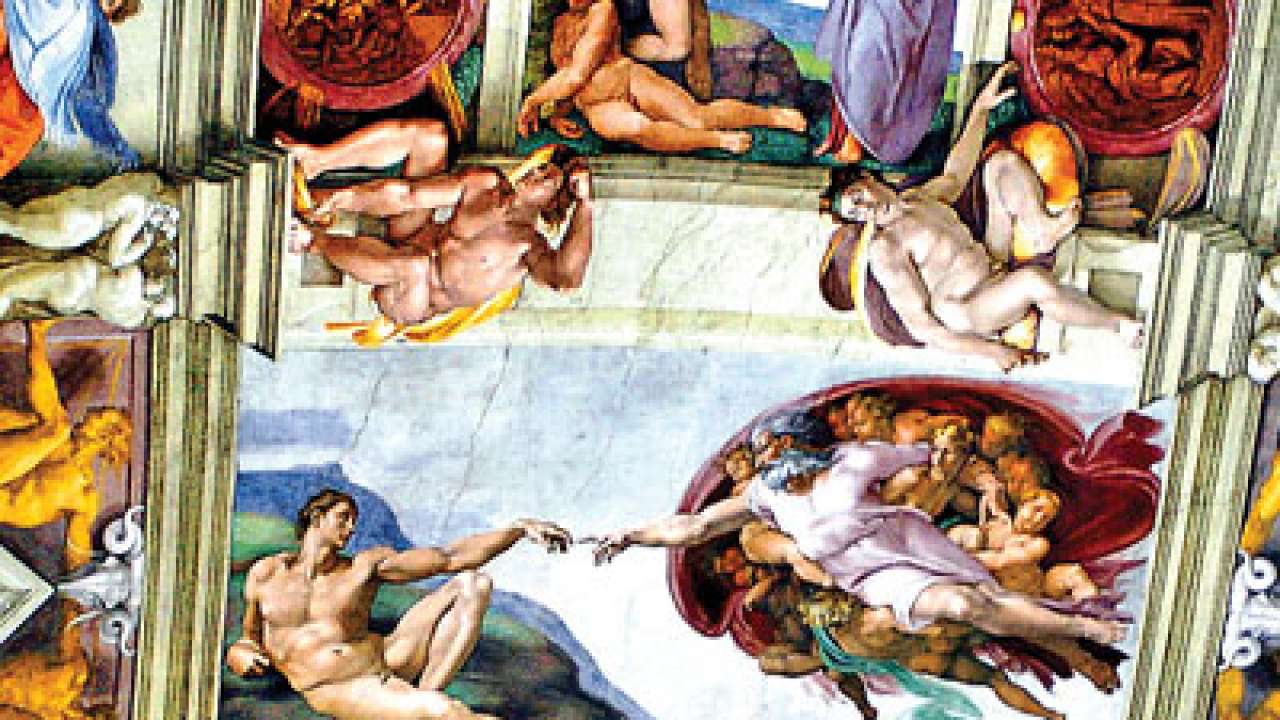
Religion and human rights, it would appear, are incompatible. Religion prescribes, regulates and proscribes. Religion is based on duties, the obverse of rights. A closer examination of the basis of rights reveals that they are not entirely derived from statute books. There is need for a deeper justification, and the rationale is to be found in a sense of morality. Until modern times, morality was tied up with religion. The modern orthodoxy is that rights fall in the secular sphere, and the argument goes that rights are a rebellion, an assertion, against the authority of religion.The emergence of the debate over rights as it has emerged in Europe and in America shows the links between religion and rights. In his 1973 book, What Are Human Rights? Maurice Cranston cites Sophocles' Antigone to show the primacy of rights against the authority of the State because rights are always in the context of the State. Antigone asserts the moral duty as against one to the State.
When Creon the ruler of Thebes orders that Polyneices will not be allowed the burial rites because he had waged war against the city, Antigone defies Creon and cites the higher duty to the gods which is superior to the duty towards the State. Antigone's rebellion is ambiguous because she pits divine law against State decree, but what marks out her act is the assertion of her right to choose. Her sister Ismene says she does not have the strength to defy the State. Antigone makes her choice and explains her decision to obey the higher law: "…nor deemed I that thy decrees are of such force, that a mortal could override the unwritten and unfailing statutes of heaven. For their life is not of today or yesterday, but from all time, and no man knows when they were first put forth." (Translated by RC Jebb)The Reformation in Europe highlights the issue of rights as pitted against the authority of the king/queen/prince/ruler.
At least two of the basic rights were at issue in the 16th and 17th centuries England. The first was right to equality. In 1547, Bishop Hugh Latimer in a sermon delivered before the young Edward VI, asserted the right to equality: "The poorest ploughman is in Christ equal with the greatest prince that is. Let them therefore have sufficient to maintain them."In the 17th century, the non-conformist sects would not accept the authority of the Church of England, and James I warned that he would harry them out if they did not accept the bishop. No bishop, no king was the dictum of the man known as the wisest fool in Christendom. These sects then left England and finally reached the shores of America. Right to belief was non-negotiable for these Christian dissidents.It is not surprising then that the Declaration of Independence penned by Thomas Jefferson in 1776 declared in eloquent language: "We hold these truths to be self-evident, that all men are created equal, that they are endowed by their Creator with certain unalienable Rights…" At the end of the Declaration, God is invoked again: "And for support of this declaration, with a firm reliance on the protection of divine Providence…"It is only with the Universal Declaration of Human Rights during the French Revolution in 1789 that there is no reference to god, providence or divinity.
It refers to the natural, unalienable rights of man, and makes a passing reference to the "Supreme Being": "…the National Assembly recognizes and declares in the presence and under the auspices of the Supreme Being, the following Rights of Man and of the Citizen."The reference to anything divine is totally absent from the Universal Declaration of Human Rights of 1948 adopted by the United Nations, but there is a strong hint of the spiritual and moral directive in Article 1 which bristles with more than the stated words: "All human beings are born free and equal in dignity and rights. They are endowed with reason and conscience and should act towards one another in a spirit of brotherhood."There is a perceptible logical development between faith/religion and human rights in the West.
This is an aspect that is generally overlooked in discussions over the evolution of human rights. When human rights became the crux of democratic debates in Asia and Africa, it seemed that rights had no connection whatsoever with religion, and that they were of exclusively secular provenance.This view has been strengthened by the fact that in Hindu, Muslim and Buddhist societies which were emerging as nation-states and polities, the religious establishments were conservative and opposed democracy and the rights debate that went with it. These religions seemed to be steeped in traditions that emphasised inherited social and political hierarchies and they opposed ideas of liberty and equality.
Political elites in these countries fought for political liberation from the European colonial powers in the secular language of democracy and rights.There are, however, sufficient traces of the principles of human rights in Hinduism, Buddhism and Islam. In case of Hinduism, the question is of doing the right thing or what is according to dharma, and even if it means going against the established order, the imperative is to follow the dharma. In Buddhism, the dharma that the Buddha preached is based on reason, and this opens up space for the issue of rights. In Islam, the fundamental principle is that adl or justice. It requires fair dealings in social transactions and in the political set up. Adl is the basis of rights. But these arguments have not figured in the political debates in these countries. There is need for the rights to be connected to the deeply ingrained religious beliefs of people in these societies in order to strengthen the rationale of rights in Asia and Africa. For this to happen, the idea that old religion and new rights are incompatible may have to be abandoned.
The author is editorial consultant with dna